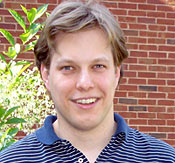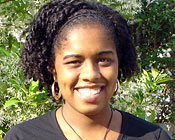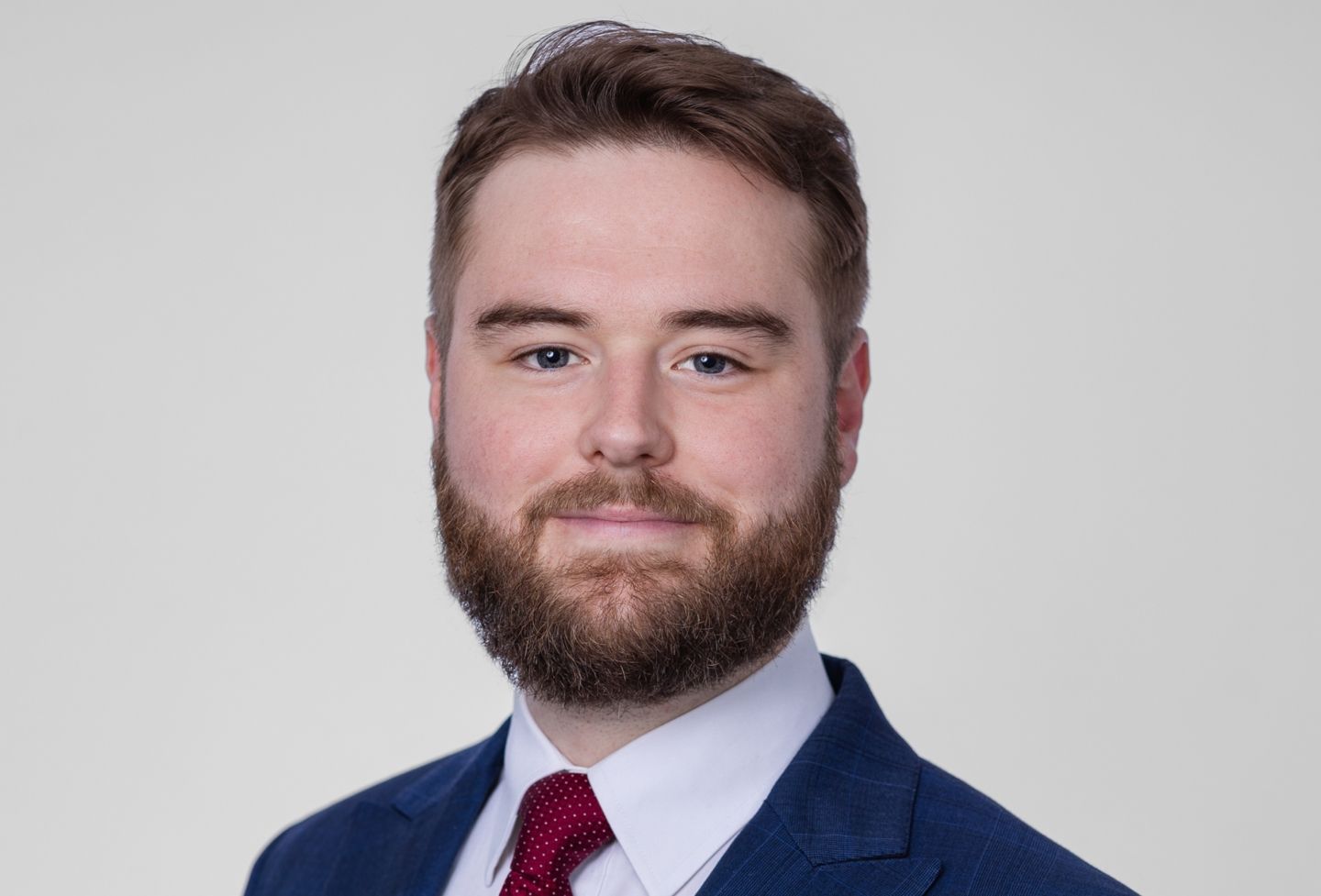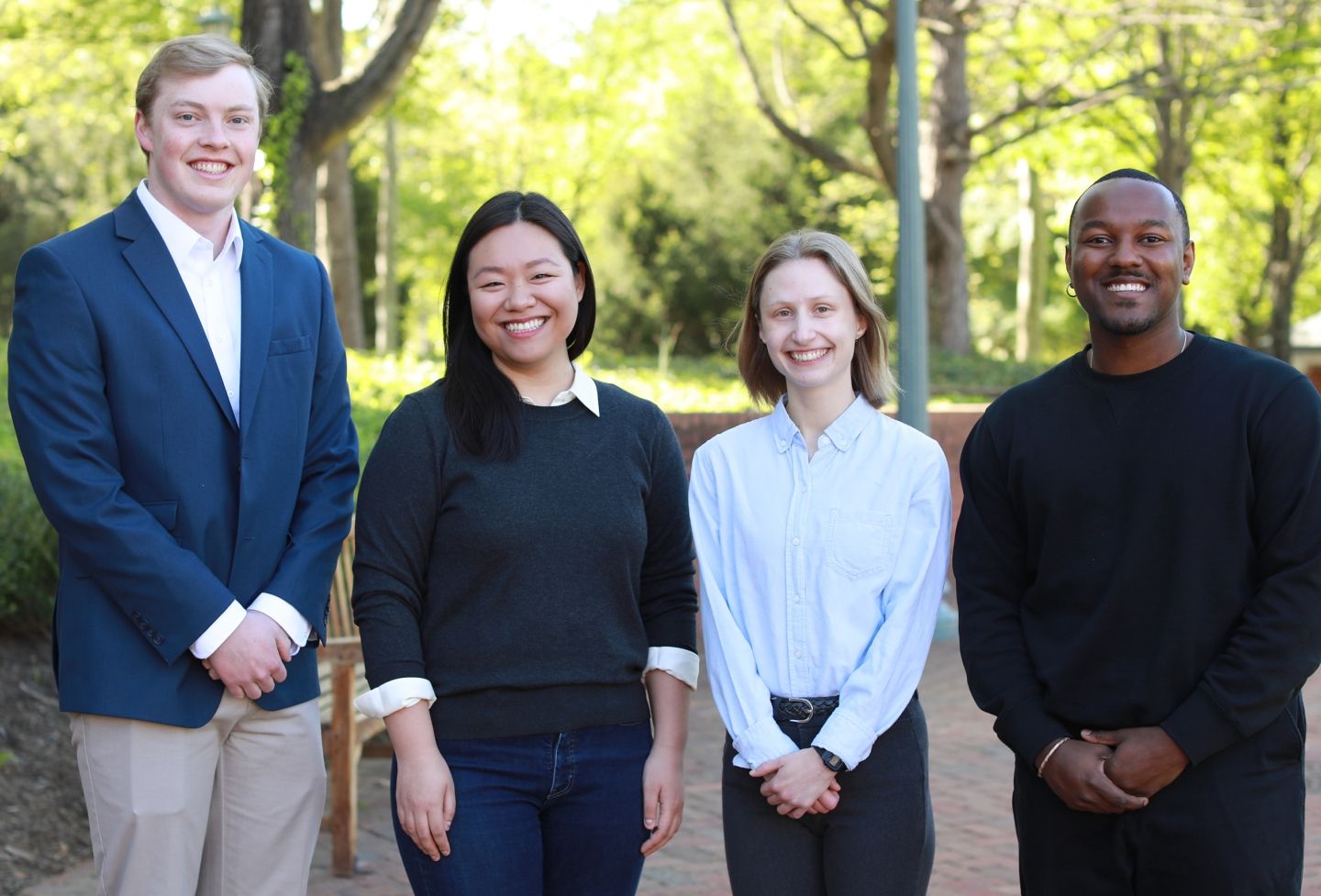Students Explore Summer Legal Work Off the Beaten Path
While many of his classmates might consider themselves lucky to divide the summer between big firms, first-year law student David Mordkoff has a more interesting split planned. Mordkoff will spend most of his summer working in ESPN's legal department, with an additional three-week stint as part of the Associated Press's team covering the World Cup in Germany.
Mordkoff and other students who have unique summer positions expect them to serve as excellent educational opportunities as well as assets during their future job searches. Just weeks before they leave for New York and Chicago, three students shared their expectations for the summer.
Mordkoff said his summer positions build on interests he has had since his time as an undergraduate at Princeton, when he covered athletics for the school's paper and wrote his thesis on Title IX and gender discrimination in college sports. After graduation, he worked for the Associated Press's sports department for four years-compiling statistics, editing, and doing live event reporting at the 2002 World Cup and the 2004 Olympics-before deciding to come to law school.



"It's a big shift looking at everything now from the legal perspective as opposed to a reporter's perspective," he said.
Once at U.Va., Mordkoff's interests led him to a panel on sports law, where he met alumnus Frank Golding, the assistant general counsel for ESPN, and learned of the internship opportunity. Because he had to commit to the AP far in advance, Mordkoff had to find a summer legal position that was willing to let him leave for three weeks in the middle of the program. After a successful application and interview with ESPN, he had found that opportunity.
"ESPN was my top choice by far and it worked out that they could accommodate my World Cup schedule as well," he explained.
The ESPN legal department works for ESPN.com, ESPN's wireless broadband programs, ESPN 360, and ESPN The Magazine, so Mordkoff said he expects to be exposed to a wide variety of media law issues, including print, online, and video.
"I'm really looking forward to the experience of working there because it combines both the sports aspect, in terms of ESPN's content, with the media aspect, which I have a minimal experience with, having worked at the AP," he said. "I don't understand the legal side-that's what I've been learning this year-but the fact that I was able to get something that puts the two of those together is just fantastic."
Long before he had ESPN on his schedule, Mordkoff had committed three weeks to traveling to Germany for the first round of the World Cup with the Associated Press. In fact, because the Associated Press begins putting its staff together over a year in advance, Mordkoff committed to the AP before he even began law school, after consulting with advisers in Career Services.
"As long as you do something law related, at least with my understanding, you're okay, and the fact that this is the exact field I want to work in if anything I hope would help if applying to firms that have sports or media law practices for next summer," he said, adding that his experiences at the World Cup might provide an interesting topic of conversation during interviews.
Once he gets to Germany, Mordkoff will be working in Berlin at the main press center, editing stories, helping with research and statistics, and occasionally writing feature articles.
"I'm just really excited for both opportunities," he said. "They're both rare chances to get to work for organizations that are at the pinnacle of their field."
Other students, including first-year law student Najah Farley, instead chose summer internships that are departures from their previous experiences. Farley will be working for BP America through the Diversity and Inclusion Scholarship, which she found after researching via e-mail notices and career Web sites.
"I thought it would be an interesting thing to do," she said. "It pays some money, and it's actually totally different from anything I've ever done before. I wanted to get an experience that wasn't necessarily working in a law firm, since that's what most people do after their second year."
Farley said the scholarship is offered to first-year law school students who have been committed to the values of diversity and inclusion for the past several years. The program allows a select multiracial group of students-three in Chicago, one in Houston and one in the Los Angeles area-to rotate through various parts of the general counsel's office, including the labor, environmental, litigation, corporations, and real estate departments. Farley, who will be interning in Chicago, said she is particularly interested in real estate and litigation.
Aside from gaining direct legal experience, Farley said she expects to learn from the life experiences of the BP legal staff, most of whom worked for a firm before deciding to switch to BP's general counsel office because they were looking for a different lifestyle.
"I'm sure, in that sense, I might learn a little bit more about what it's like to work in a firm from them," she said.
First-year students are not alone in finding unique summer employment. Second-year law student Everton Morris will devote his summer to the New York Stock Exchange Regulation Enforcement Division.
"The Enforcement Division of the New York Stock Exchange is charged with investigating and bringing actions against either issuing companies or shareholders who have potentially violated the securities laws," Morris explained. "I will be involved in various current or upcoming cases of securities fraud or other securities litigation."
Although the internship program is somewhat similar to that at a firm, with various activities planned for the approximately 15 interns in addition to legal work, Morris said he expects some beneficial differences.
"I think in some ways working at the Exchange offers an advantage in that I have more access to substantive legal work, which is very hard in many instances for summer associates to get while working at a law firm," he said, referencing the small size of the NYSE legal operation.
Obtaining the position was "a very competitive process," Morris said. He sent a letter expressing interest, a writing sample and a resume and then completed two interview sessions via phone before receiving the offer.
The position will be a significant departure from Morris's previous positions. Last summer he worked for the CIA Director's Special Assistant for War Crimes and Related Issues.
"All my previous work experience has been either in the public service in some form of governmental capacity or in politics," he said.
He has been interested in securities law, however, since before he came to law school and that interest has grown through participation in the Law & Business Program, among other things. Morris said he hopes his summer position will help him determine if he would like securities law to be his long-term focus.
Morris said he does not feel his choice of internship is risky if he decides to seek a firm job in the future.
"I did some homework-I informally spoke with people at various firms just to get some idea of how they would react to someone who would be coming from the New York Stock Exchange, and I'll say it's very favorable," he said. "In fact, it's almost funny. Several firms [that] it was hard even to get an audience with...in the past-once I tell them that I am working at the Exchange, they're trying to invite me to lunch while I'm there, and my lunch schedule might be a little too heavily booked."
Morris also urged other students to consider unique internship opportunities.
"I would encourage people generally to not be afraid to explore other avenues in terms of options for legal employment, keeping in mind that there are many ways in which you can build a substantive knowledge base that will help solidify the foundations at least for the beginning part of your career," he said.
Founded in 1819, the University of Virginia School of Law is the second-oldest continuously operating law school in the nation. Consistently ranked among the top law schools, Virginia is a world-renowned training ground for distinguished lawyers and public servants, instilling in them a commitment to leadership, integrity and community service.


